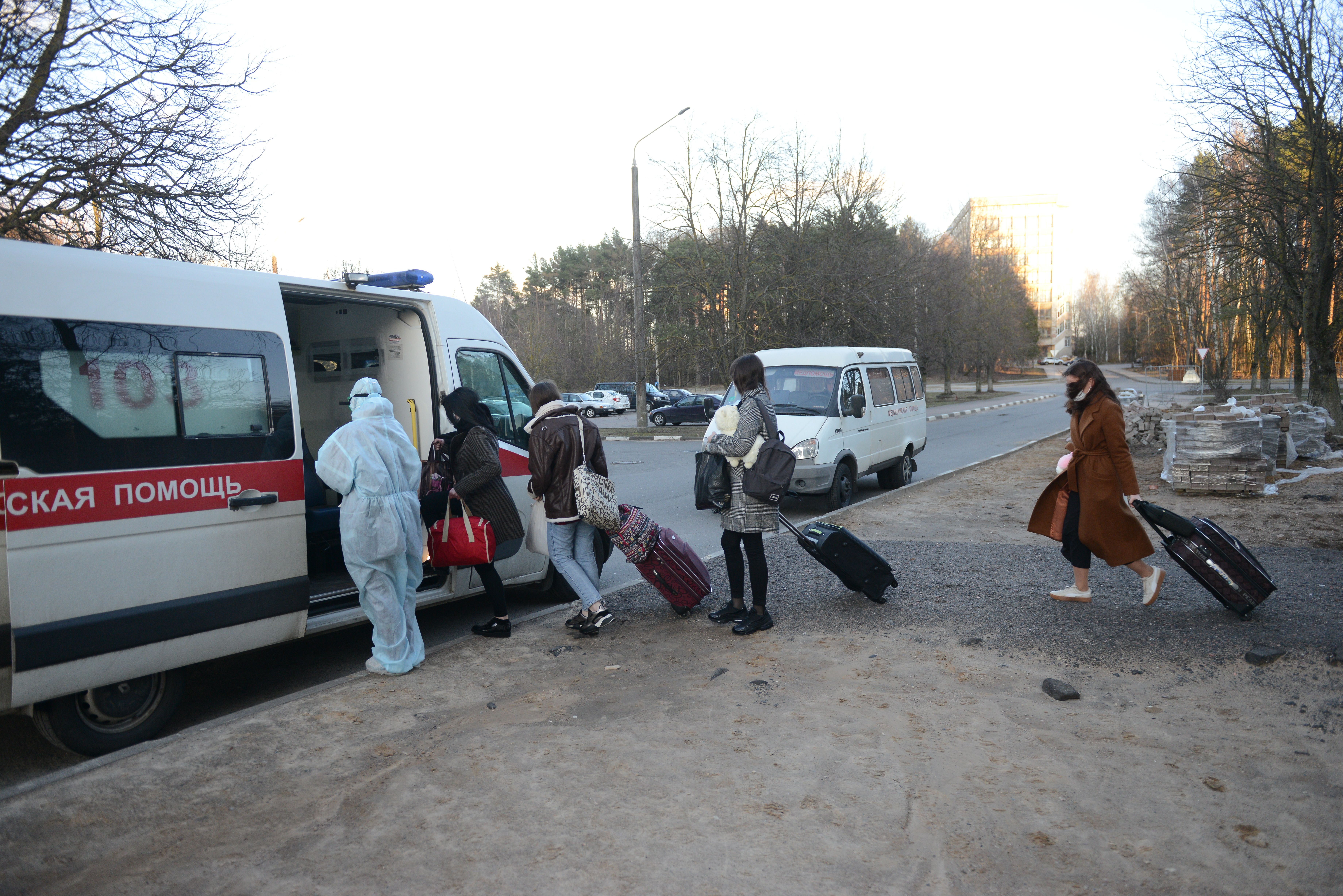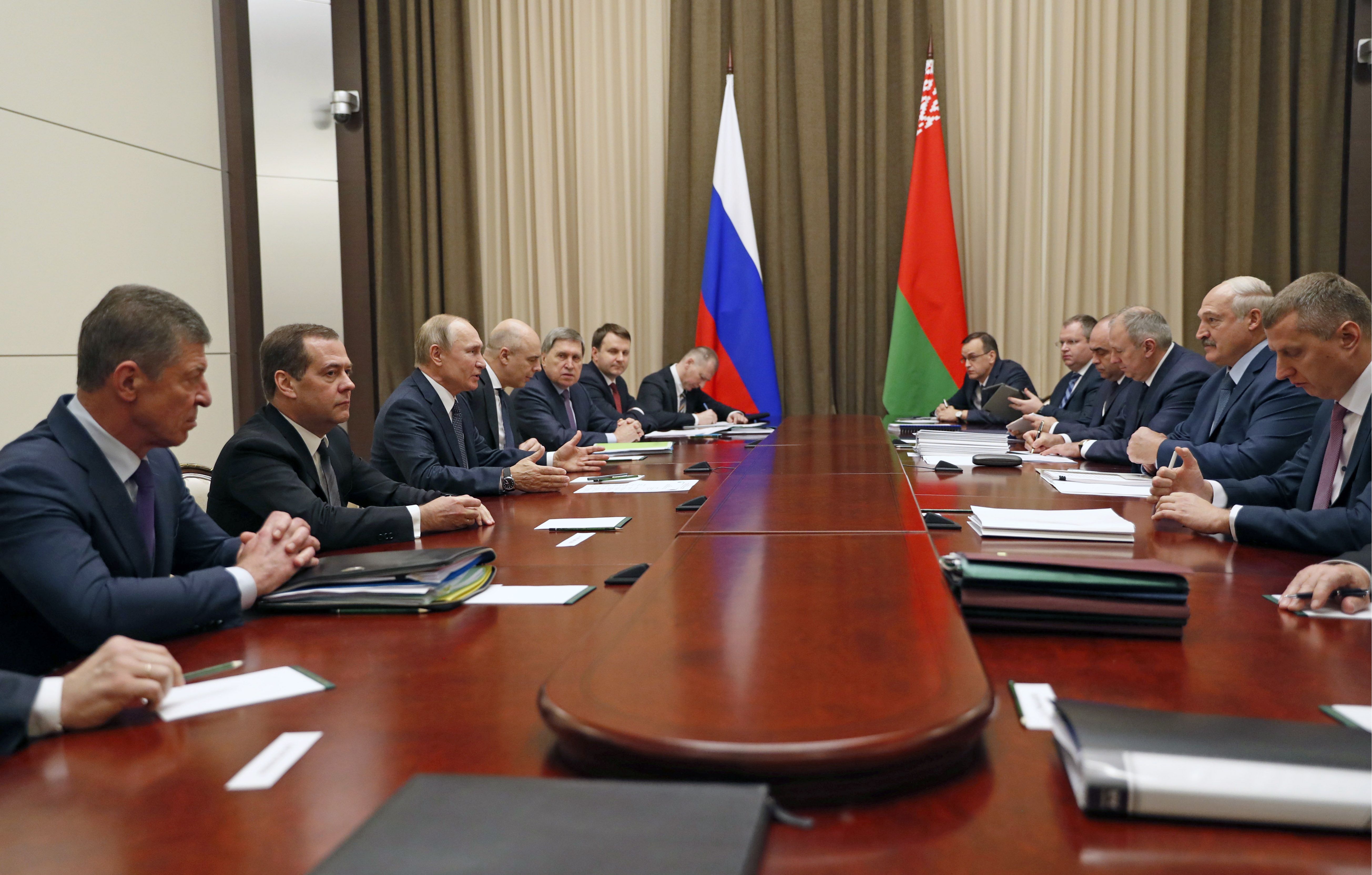Economic Challenges for Belarus

Symptoms of the economic slowdown were already visible in Belarus in 2019. GDP, measured year-on-year, increased by just 1.2% and amounted to $63 billion. Moreover, in 2020, according to economists, GDP will decrease from between 2% and 10%. This will be a consequence of the global crisis caused by the COVID-19 pandemic and the related economic collapse on the Russian and EU markets (these being the destination for around two-thirds of exports from Belarus), and the fall in oil prices.
Challenges for the Economy
The largest source of budgetary revenues of Belarus was oil refining, which in 2018 accounted for 10% of income. The problems with the extension of the oil contract with Russia, negotiations on which have been ongoing since the end of 2019, have resulted in a significant reduction in oil refinery activity and have adversely affected Belarus’ economic indicators. In January to February this year, Belarus’ GDP decreased by 0.6% compared to the same period of 2019. Additionally, in the 2020 budget, the government assumed a deficit for the first time in years.
On 22 March, Belarus and Russia agreed on the resumption of supply, but this does not mean the end of problems related to oil refining. The global decline in prices will reduce the value of petroleum products, and thus the revenues to the Belarusian budget, also due to customs and excise fees.
An additional burden for Belarus in the coming years will be the launch of the nuclear power plant in Astravyets. The date of its launch has been repeatedly shifted, which was partly due to the linking of the loan repayment (in 2011, it received $10 billion for construction from Russia) with the commissioning of the investment. According to the agreement, Belarus should start repaying the debt within six months from commissioning, but no later than 1 April 2021, and pay it back within 15 years. The implementation of this commitment will mean annual expenditure of about $0.4–0.6 billion, depending on the final amount that Belarus will have to pay back, and it is currently estimated that the construction of the power plant will cost approx. $7 billion. Maintaining the state’s financial liquidity will be hampered by the low likelihood of obtaining foreign loans to repay previous liabilities. The IMF may be the only lender ready to assist.
The crisis of state finances will mean that Belarus will not have sufficient financial resources to tackle the effects of the COVID-19 pandemic.
Consequences of the Pandemic for Belarus
According to data from the Ministry of Health, 24,000 COVID‑19 tests had been carried out by 27 March. Of these, 94 cases of the disease were confirmed, of which 32 were considered cured. However, the Belarusian authorities have so far not decided to limit the functioning of enterprises and service providers.
Despite this, due to the high dependence on exports to Russia and the EU, Belarusian companies will feel the collapse in these markets. The crisis has already hit the household appliances and automotive industries (70–80% of parts are imported) as well as tourism and air transport. Moreover, the recently observed sharp decline in the value of the Belarusian rouble against the dollar and the euro will increase the cost of importing and servicing foreign debt.
There will also be a negative impact on the financial situation of Belarusians, arising from the decision of all neighbouring countries to close their borders. This is particularly important in the case of Russia, which decided to do this for political reasons because traffic between these countries is relatively easy to control and there is no land crossing with international status. According to official data, Belarusians working abroad in 2018 sent home the equivalent of $326 million (0.5% of GDP), and the current restrictions will deprive some of them of their income.
The government started initial work on the anti-crisis package on 26 March. Earlier, the only aid package for tourist companies had been presented by the Ministry of Sport and Tourism. It included proposals for tax and rent holidays, providing concessional loans, and extending the period during which companies must refund money for cancelled services (currently seven days), aimed to improve the financial liquidity of businesses.
The need to combat the economic consequences of the COVID-19 pandemic gives the authorities an excuse to avoid introducing socially costly economic reforms such as closing unprofitable enterprises or privatising others, resulting in a reduction in employment.
The authorities’ lack of response to the COVID-19 pandemic is probably caused by the inability to compensate private entrepreneurs for losses, and the fear of a significant decline in production and employment in the event of the suspension of activity by state-owned companies. However, this could lead to a sharp increase in the number of illnesses, which in the case of an ageing population may, in an extreme scenario, end with a humanitarian disaster.
At the same time, Russia will take advantage of the economic problems of Belarus, hoping that, in return for cheap energy resources, it will decide to sign the deeper integration plan that both countries negotiated last year. It assumes the establishment of joint tax and anti-monopoly institutions and customs services, the establishment of the Court and the Accounts Chamber of the Union State, and a regulatory office dedicated, among other things, to the electricity, oil and gas markets, which would significantly limit the independence of the Belarusian authorities.
Russia may also intensify the economic crisis associated with the COVID-19 pandemic if it hinders trade with Belarus by introducing non-tariff barriers and does not support this country in the form of new loans, deferred repayments or cancellation of old ones.
Economic Stability and Political Processes
The economic crisis and the possible wave of deaths arising from COVID-19 can have a significant impact on the political processes taking place in Belarus. In the event of a sharp deterioration in living standards and a lack of remedies taken by the authorities, significant social protests can be expected (in previous years, they were organised mainly in connection with living standards), some of which in extreme cases may be violent. Any forcible pacification of protests during the presidential election campaign would work in Russia’s favour because such a scenario would mean a deterioration of Belarus’ relations with the EU and the United States.
At the same time, if Russia wishes to destabilise the socio-political situation, one may expect, shortly, a wave of accusations of the Belarusian authorities’ inadequate response to the COVID-19 pandemic, especially if there is a rapid increase in the number of cases in Belarus. Thus, EU support for Belarus will be particularly important, both in combating the effects of the pandemic and in counteracting Russian disinformation.
Conclusions
Belarus will face a significant economic crisis and it may have serious effects on the country’s internal and foreign policy. The recession will probably be used by Russia to force the Belarusian authorities to adopt a package of deeper integration, which will increase Belarusian dependence.
Poland, other EU Member States, and the U.S. should be ready for a negative scenario in which, due to the poor economic situation, serious social, humanitarian and political crises may occur in Belarus. In the coming months, it will be most important to support Belarus in diversifying oil supplies, allowing it to acquire oil from, among others, the Middle East, and to launch of loans for the adaptation or construction of transmission infrastructure enabling the import of crude oil through Poland or the Baltic States. This will let the Belarusian authorities make part of their budget revenues independent of Russia. It also will be very important to support Belarus if it tries to acquire another loan from the IMF to maintain financial liquidity. In the longer term, it will also be important to help this country to join the WTO. Membership of this organisation will enable the Belarusian authorities to sue Russia before the dispute resolution body if it violates WTO rules and introduces artificial trade barriers.




